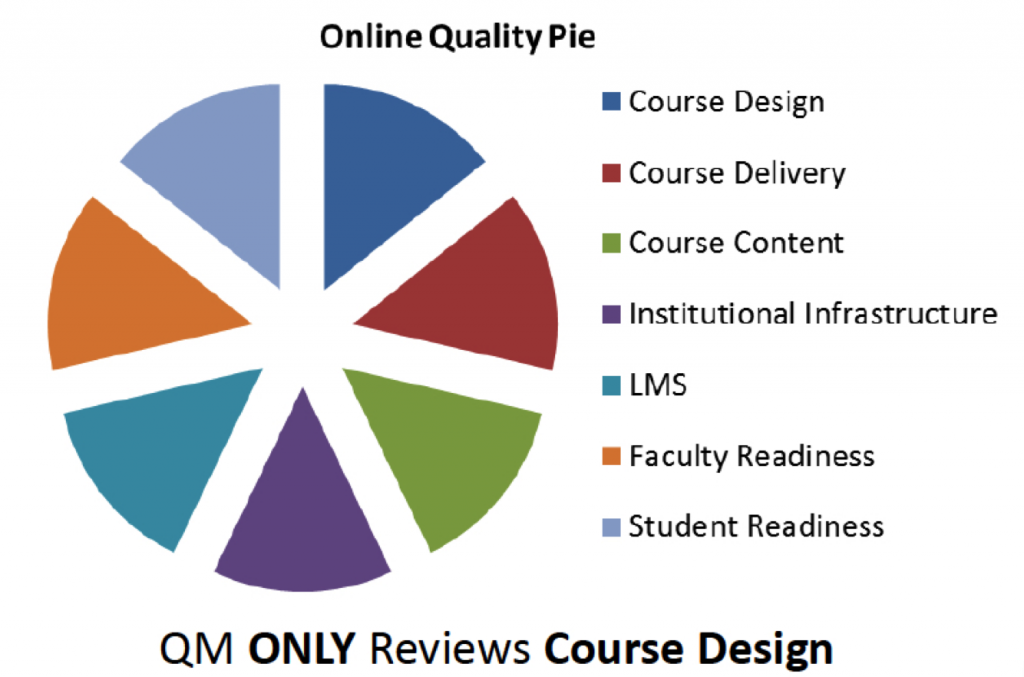In 2014, St. Edward’s subscribed to Quality Matters, a nationally recognized program for ensuring excellence in online and blended courses. This blog post is intended to give the St. Ed’s community a quick overview of QM and what we can hope to gain from the program:
What is Quality Matters?
- QM is a Not-for-Profit, Subscription-based service
- QM provides tools and training for Quality Assurance of Online and Blended Courses
- Originally developed at MarylandOnline via grant funding
- Used by hundreds of Universities in 45 states
- QM is a set of Rubric-based standards for the design and structure of online and blended courses
- Can be used by individual Instructors or as part of a committee-based review process
- Campus QM programs are always Faculty led
- The QM organization provides training and professional certifications
What is the QM Process?
From the Faculty Perspective the QM process is designed to be:
- Collaborative – It’s about the course, not the individual Instructor
- Collegial – It’s about course quality, not faculty evaluation
- Continuous – It’s an iterative process of improvement, not a “win/lose” or “pass/fail”
- Centered – It’s about diagnosis and improvement, not judgment
When reviewing Courses, there are 8 components that are evaluated. The components are listed below, in the order in which they are evaluated:
1. Course Overview and Introduction
2. Learning Objectives or Competencies
3. Assessment and Measurement
4. Instructional Materials
5. Learner Interaction and Engagement
6. Course Technology
7. Learner Support
8. Accessibilty
How can St. Ed’s Faculty take advantage of the QM process?
There are three ways in which the QM process can be used:
- Individual Instructor uses QM Rubric to evaluate and improve her course
- Individual Instructor works with SEU QM Peer Reviewer to collaborate on conducting the QM review process
- Individual Instructor works with SEU QM Committee to complete formal course review and certification
As indicated before, the QM process is always Faculty-led. Individuals are free to use the QM process and rubric to evaluate their own courses, while evaluation committees are convened to perform official reviews that result in QM certification. Review committees are comprised of three reviewers.
